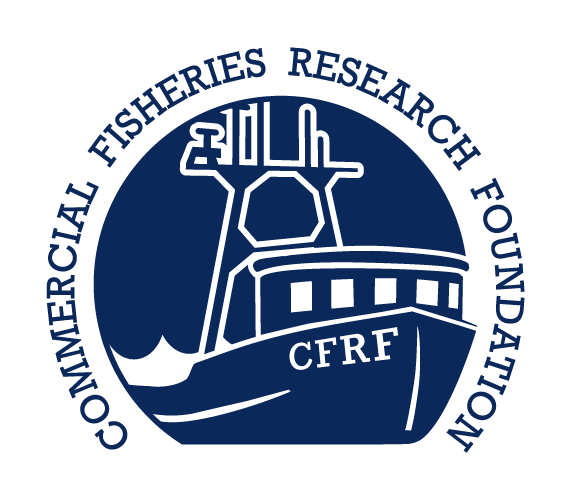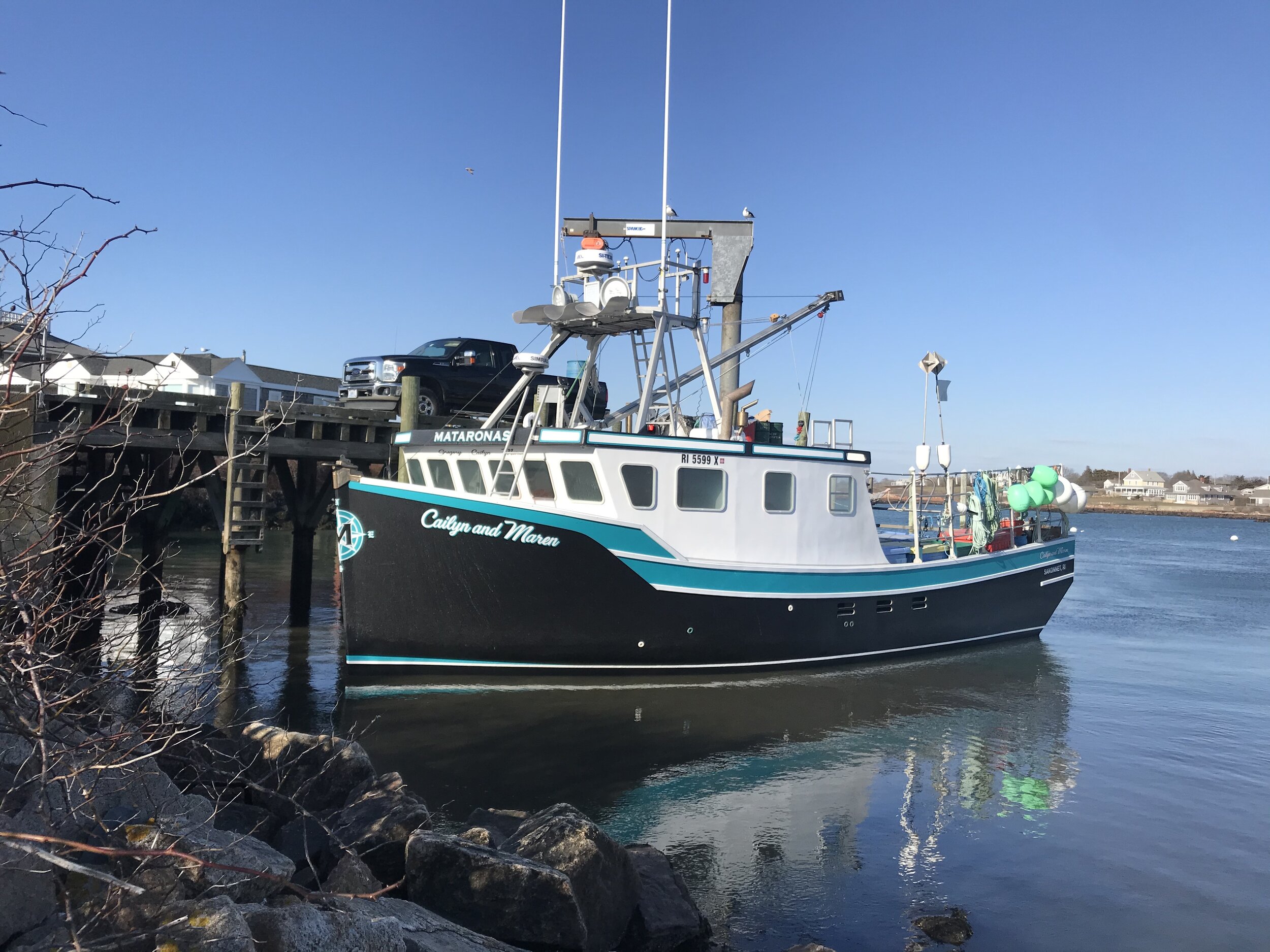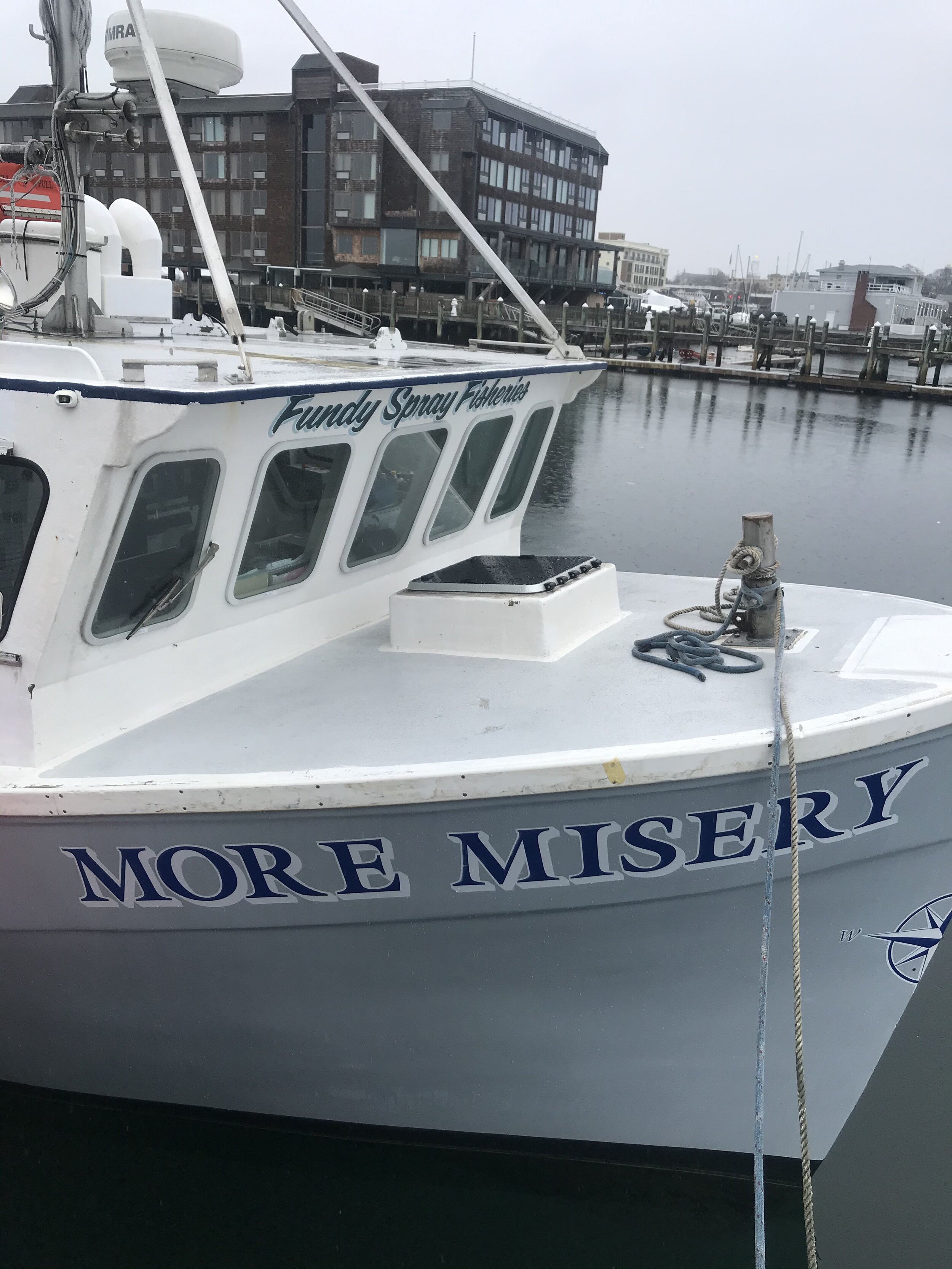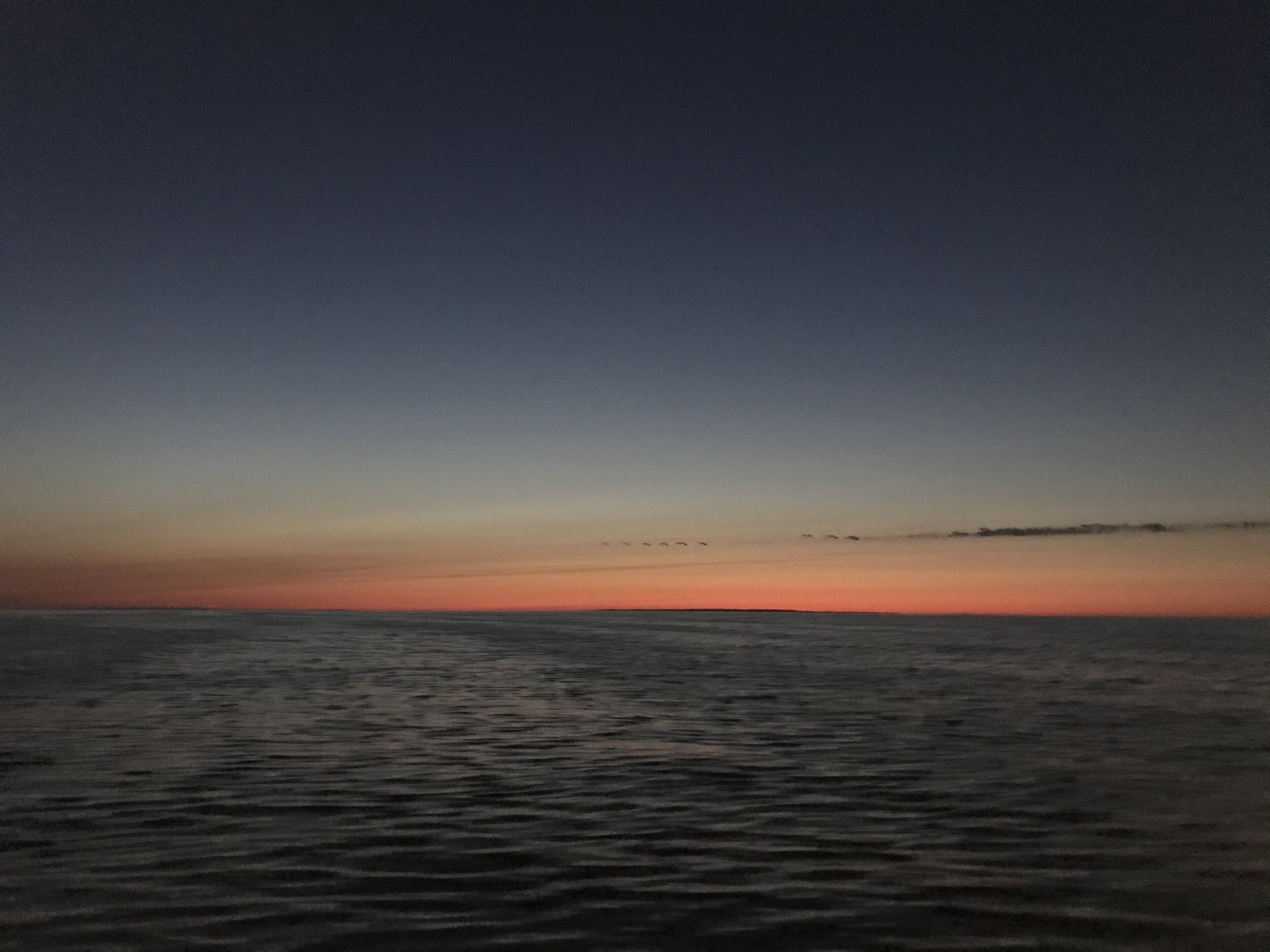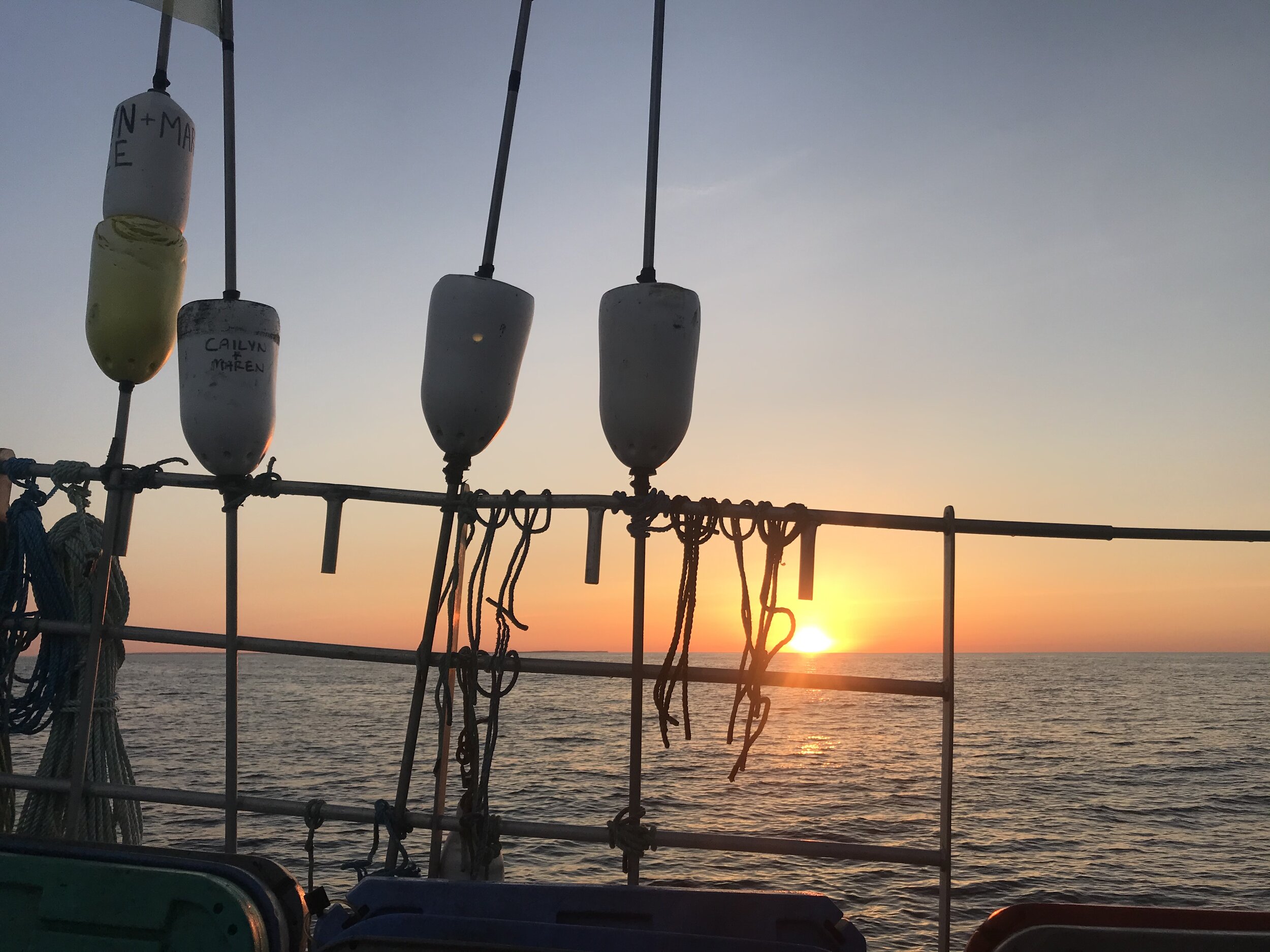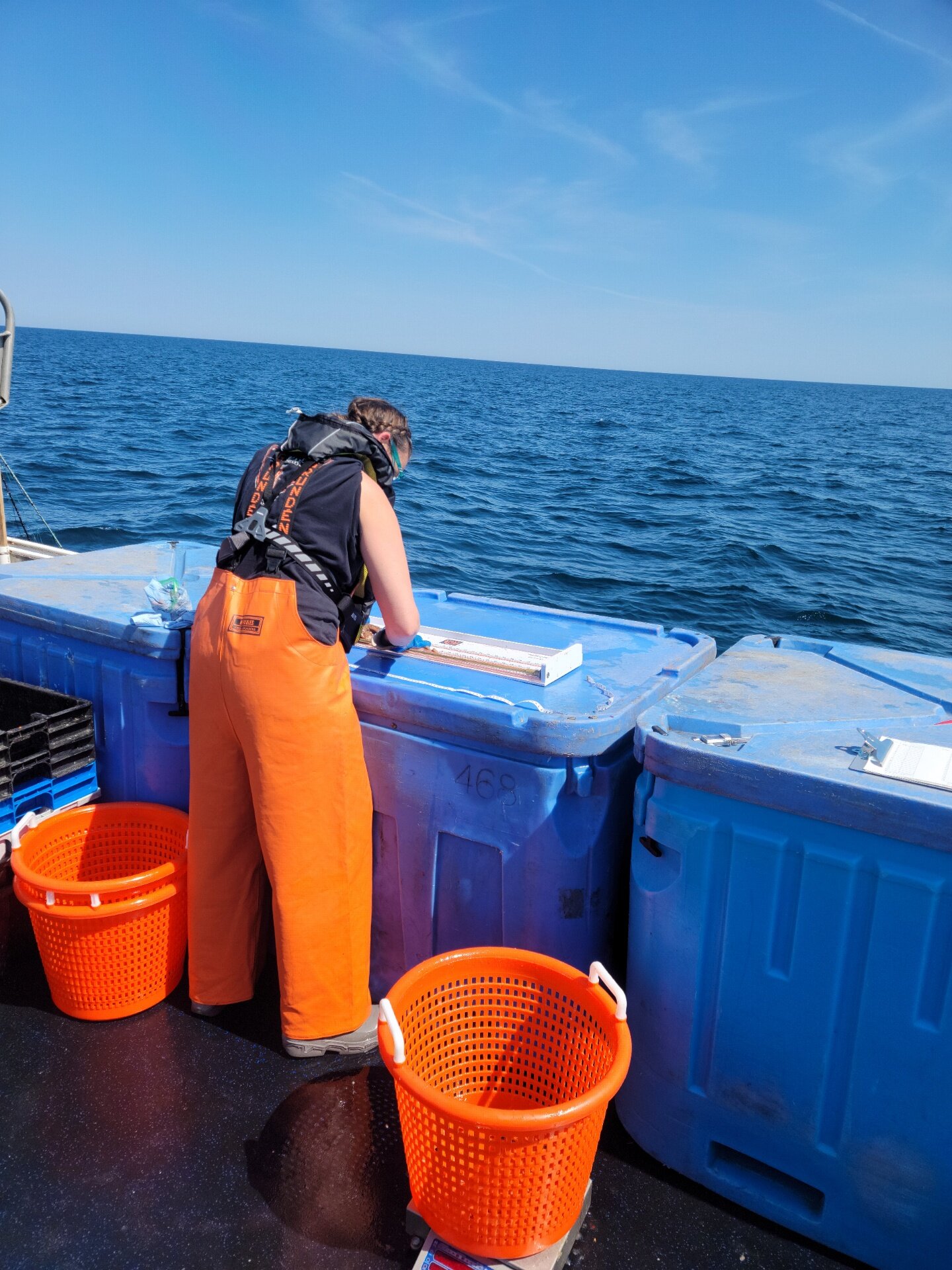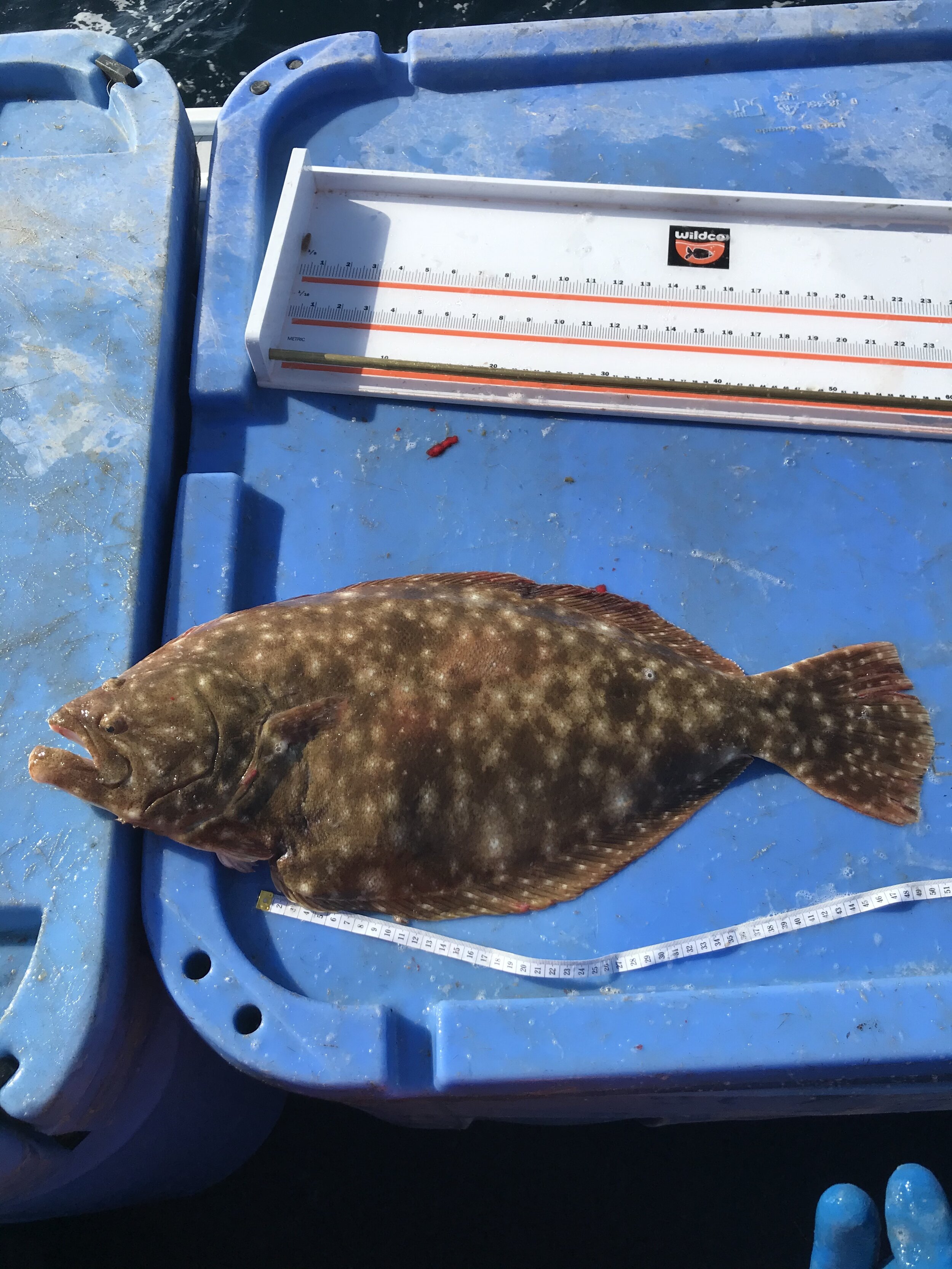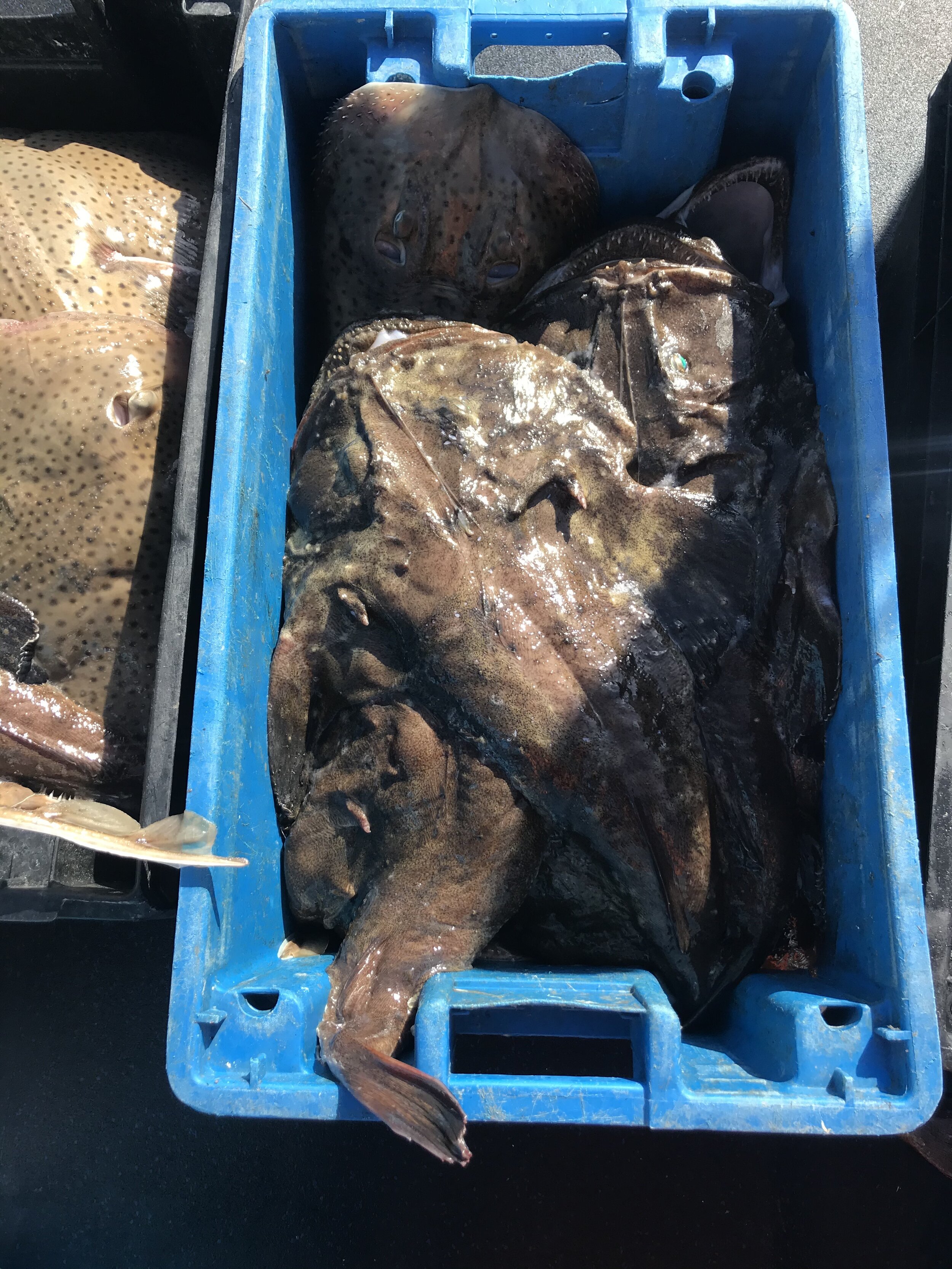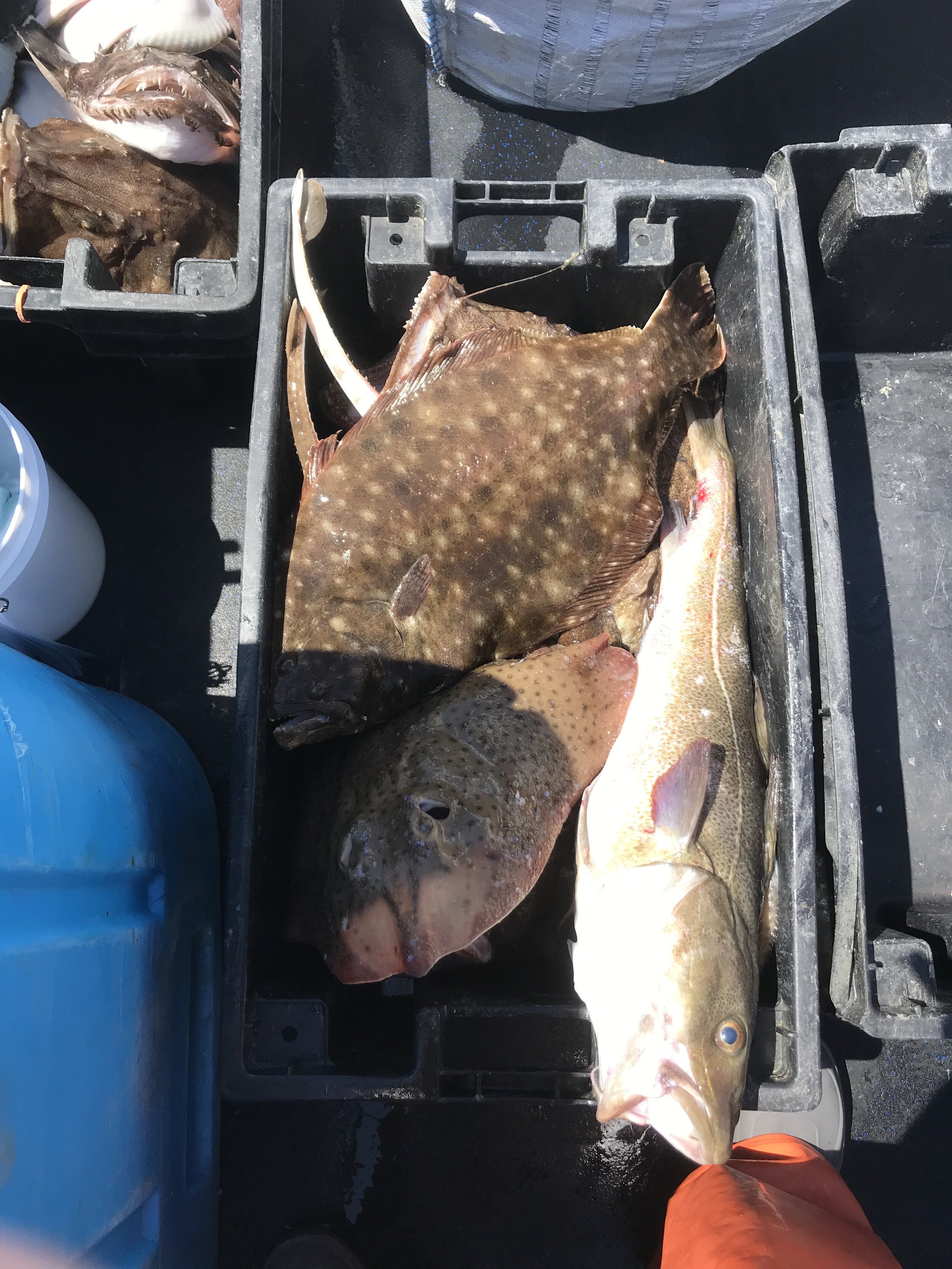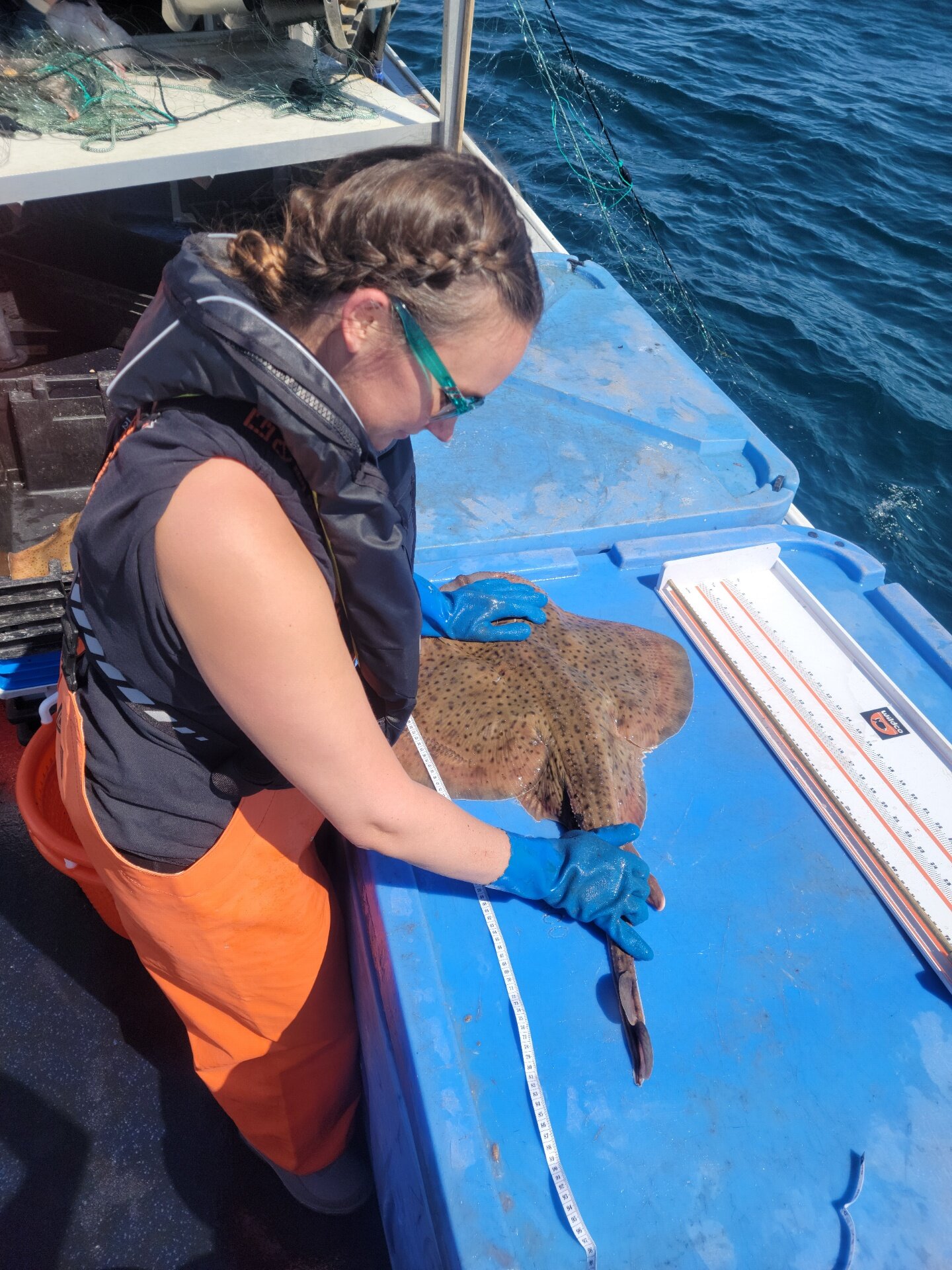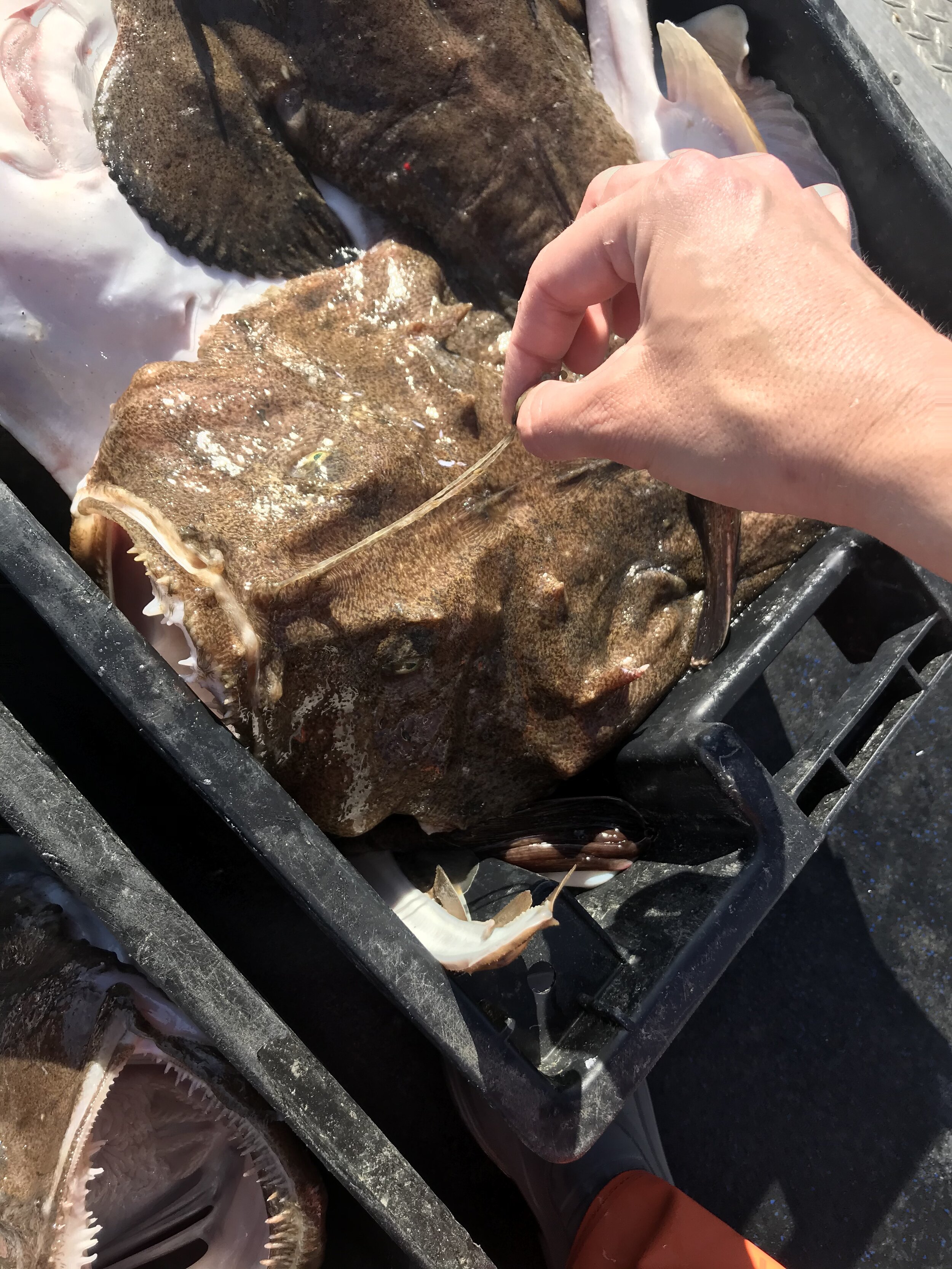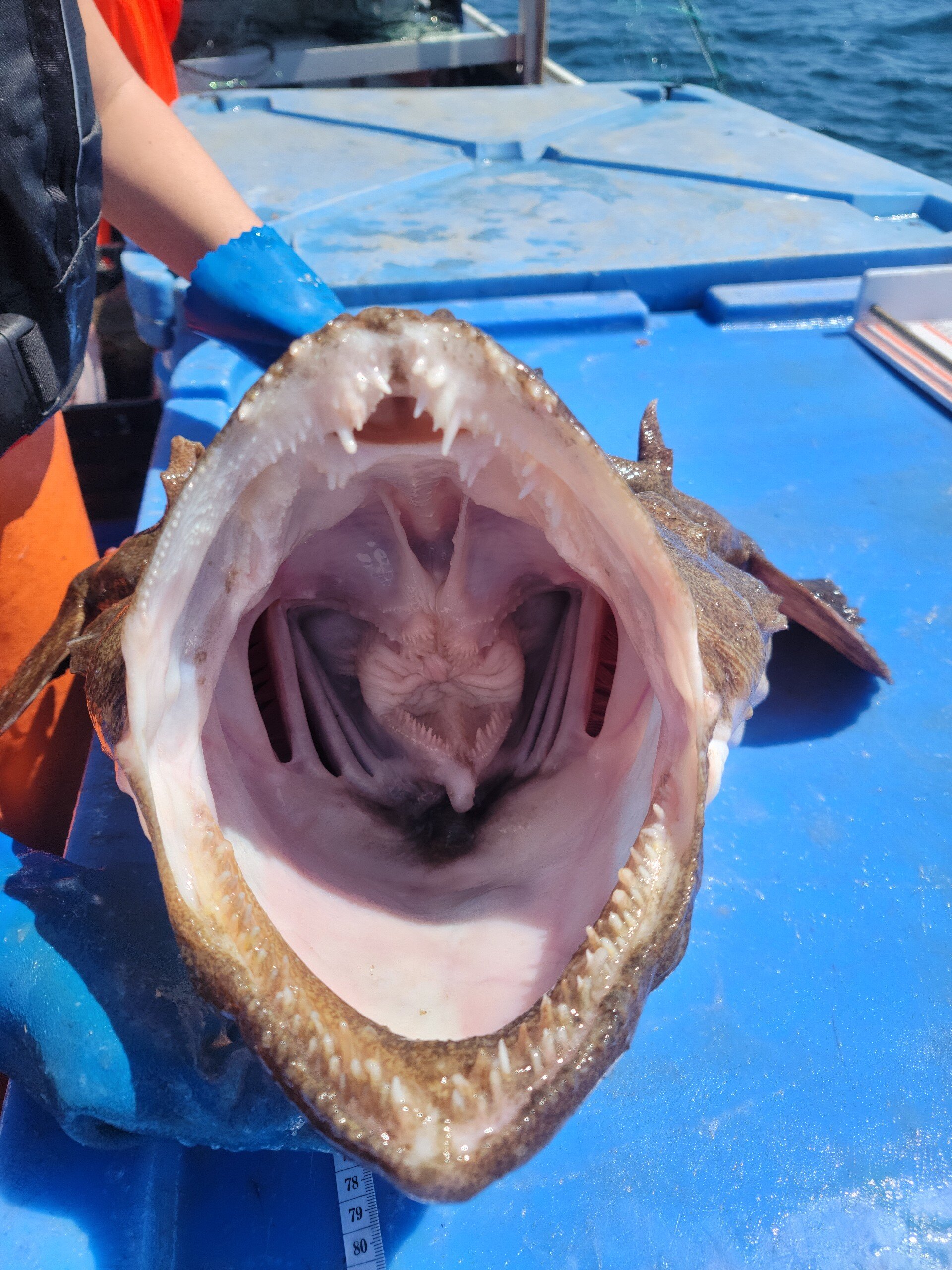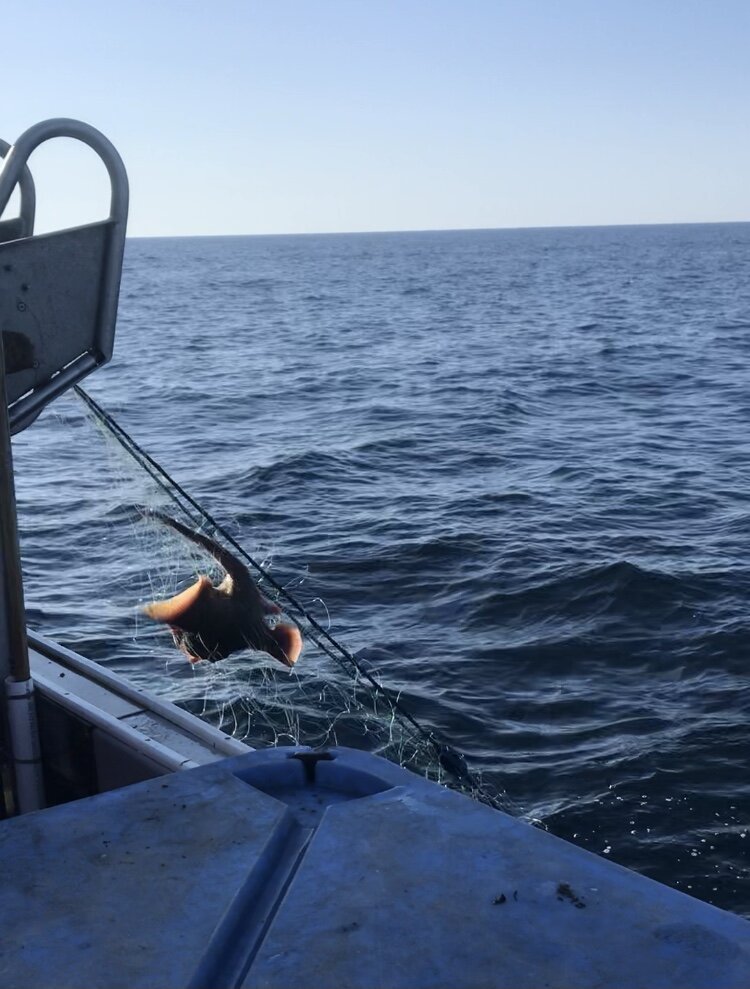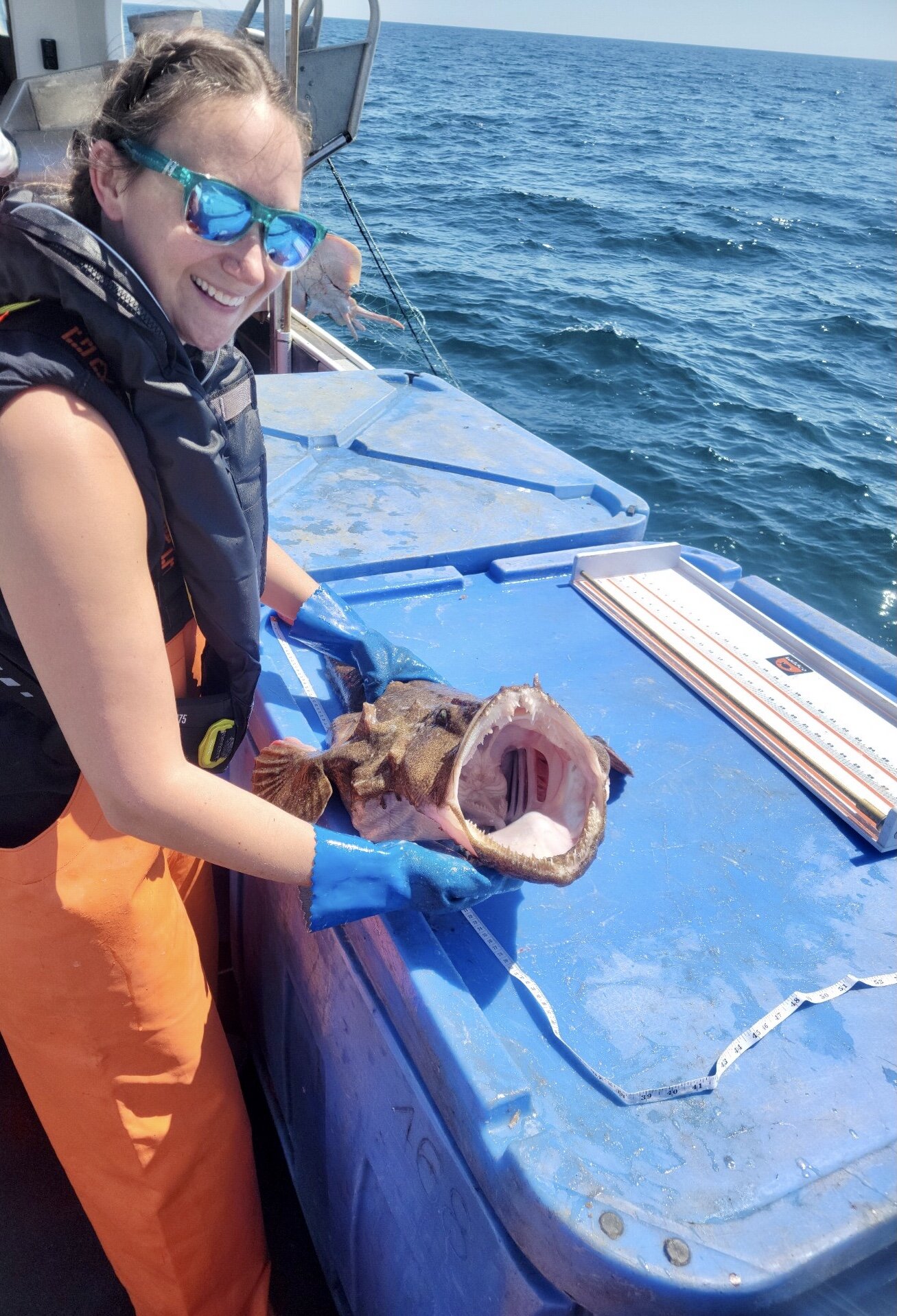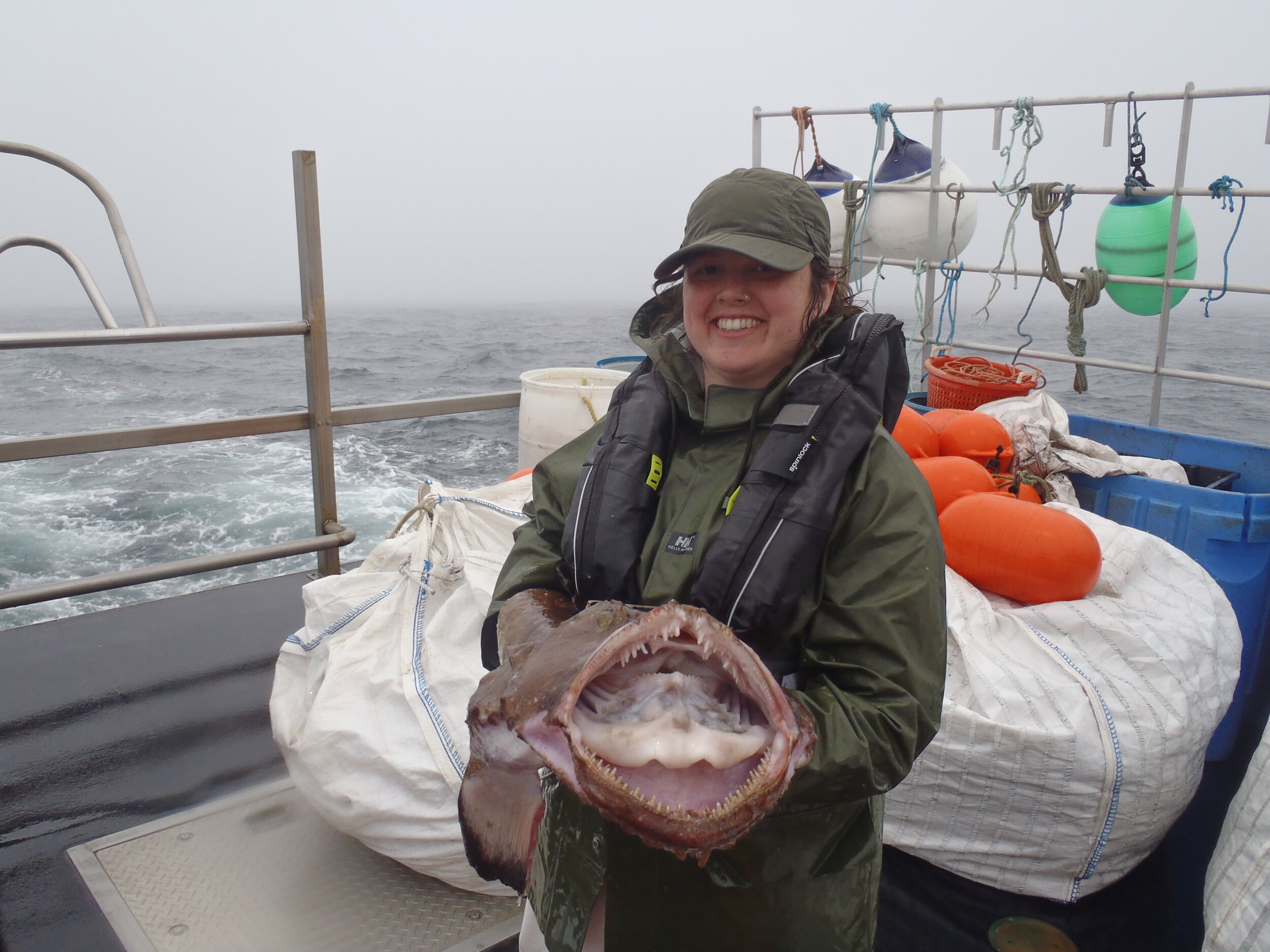SFWF Gillnet Survey
Purpose of work
This survey was designed to assess the seasonal abundance, distribution, and composition of marine organisms in the windfarm lease area, and in the two reference areas for two years prior to the construction of the South Fork Wind Farm (SFWF). The survey used large-mesh gillnet gear and primarily targeted monkfish and little skate. Sampling was conducted twice per month in the control and impact areas from April-June and again from October-December for each year of the pre-construction phase of the survey.
Project Team
N. David Bethoney, PhD, Executive Director, CFRF
Susan Inglis, Research Associate, CFRF
Gregory Mataronas, Owner/Operator, F/V Cailyn and Maren, Little Compton, RI
Todd Sutton, Owner/Operator, F/V More Misery, Newport, RI
Participant Vessels
Gregory Mataronas, Owner/Operator, F/V Cailyn and Maren, Little Compton, RI
Todd Sutton, Owner/Operator, F/V More Misery, Newport, RI
Data Recorded
Station Information: Location (start and end), water depth, date, time, # pingers hauled/lost, gear condition code, and any comments
Environmental data: Sea state, and bottom temp with a logger attached to the gillnet string
Catch Data: All (Total individuals and biomass per area; Number of individuals and biomass per species and area; Species Diversity; and Length frequency distribution of dominant and/or vulnerable species)
Biological Sampling: Individual lengths and weights, Stomach content, and sex and stage from select species
Survey Dates
The pre-construction survey occurred twice per month from May-June and October-December 2021, and April-June and October-December 2022.
SURVEY GEAR
Participating vessels used five gillnet strings with six, 300-foot net panels of 12 inch mesh and tie downs. Gillnet strings were complaint with all regulations, including the Atlantic Large Whale Take Reduction Plan, and used Future Oceans Marine Mammal Deterrent Devices (10Khz) to warn harbor porpoises of nearby nets. Ninety nets were sampled in total, twice per month on a 48- or 24-hour soak time during survey periods.
Data Updates
Year 2
Year 1
View the Year 1 summary poster here
